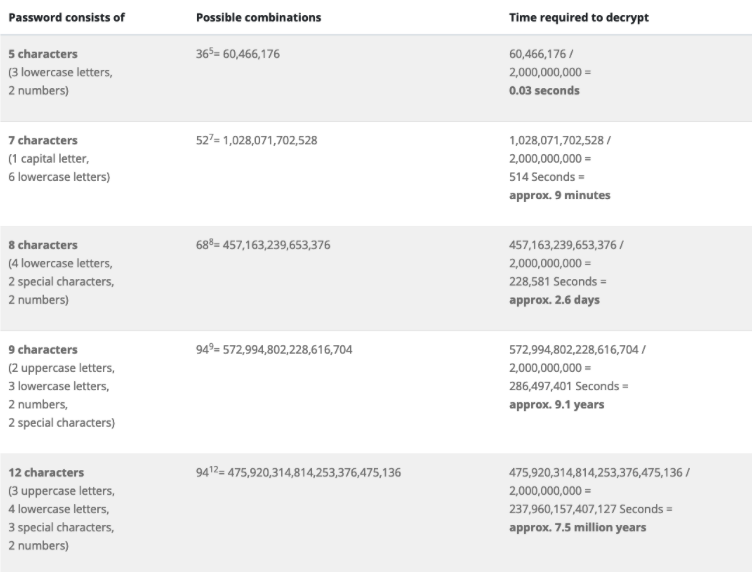How secure is your password?… One of the biggest reasons for security breaches is weak passwords. People often choose passwords that are too short. Regardless of how tedious it seems, make it a point to update your passwords regularly; use upper and lower case letters along with symbols and numbers.
The key measurement of password security is entropy. This, in computer science terms, is a measurement of how unpredictable a password is, based on how long it would take an attacker to work it out by making a guess at each character. As a standard, longer passwords are by definition more secure and harder to crack. In the table below you can see how shorter/easier passwords, are quicker to crack.
What should a password look like
Strong, secure passwords have a lot in common; they are usually long, unique, random and involve a mixture of lowercase and uppercase letters as well as special characters and numbers. Trying to create passwords that comprised of all of these aspects, can sometimes be challenging.
Most insecure passwords are the result of our human behaviour. People do a lot of very predictable things and in general find it difficult to be random, especially when they are actively trying to be. For instance putting special characters only at the beginning or end rather than mixing them up in the middle, or using common phrases and keyboard patterns. So that we can remember we often try to use memorable pieces of information but we should always, where possible, avoid clues and references to our personal lives.
Where can I go for advice
There are many articles online to help assist with what a strong password looks like. At a recent event Lineal ran with the South West Police Regional Cyber Crime Unit, which focused on cyber security, password strength was highlighted as a high risk for many businesses and individuals.
To find out more, or if you require any help with ways to help protect your business, please contact the IT support team at Lineal.

